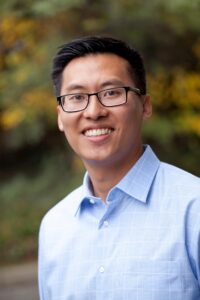
Last year, Fong filed to run for State Assembly District 32, and after McCarthy unexpectedly announced his early retirement, submitted paperwork to also run for the now empty Congressional District 20 seat.
Fong unsuccessfully tried to withdraw from running for his assembly seat.
Fong’s major competitor in that race is Tulare County Sheriff Mike Boudreaux who came in second in the March 5 Primary.
Secretary of State Shirley Weber said back in December that state election law barred candidates from running for two offices at the same time. Fong appealed Webber’s decision and was able to appear on the March 5 Primary ballot.
Webber asked the appellate court to review their decision and get the issue resolved before the Primary results are certified April 12. According to the Los Angeles Times, the 3rd District Court of Appeal declared on Tuesday, April 9, that Weber’s argument did not apply to Fong.
“If the legislature wants to prohibit candidates from running for more than one office at the same election, it is free to do so,” appellate court Judge Laurie Earl wrote in her opinion. Until then, she wrote, the court must enforce election law as it is written.
Weber said, in a statement, that both courts recognized that the decision “leaves the door open to chaos, gamesmanship and voter disenfranchisement, and disadvantages other candidates.” She said her office is “carefully considering all our options.”
According to reporting in the Los Angeles Times,
Fong’s campaign argued the provision has not been legally valid since 2010, when California voters approved a new state primary system. The change scrapped party nominations in favor of the so-called “jungle primary,” in which the top two vote-getters advance to the general election, regardless of party affiliation.
The state argued that the “or” in the clause split the law into two provisions: one that governed nominations, and one that barred candidates from running for more than one office.
“The ‘or’ is the key word there, and that’s why it’s two separate provisions,” Deputy Atty. Gen. Seth Goldstein said during oral arguments at the appellate court last week. The Legislature “could have made the statute more clear,” he said, but in the absence of that clarity, the court should defer to the state’s top election official.
That’s “very persuasive in terms of legislative intent,” but less persuasive when it came to parsing the actual wording of the law, said Jessica Levinson, an election law professor at Loyola Law School.
“What the judge is saying here is: I might know what the statute was intended to do, but I am bound by the language,” Levinson said.
Weber’s office also said that the Fong campaign’s interpretation of the law would allow candidates to “run for an unlimited number of offices during the same election, review the results, and pick the office they want most of those won, and resign from the rest,” Earl wrote in her opinion.
Two members of the state Assembly have introduced bills aimed at closing the loop hole allowing candidates to run for multiple offices on the same ballot.
Fong came in first in the March 5 Primary and is favored to win the general election and the May 19 Special Election.
